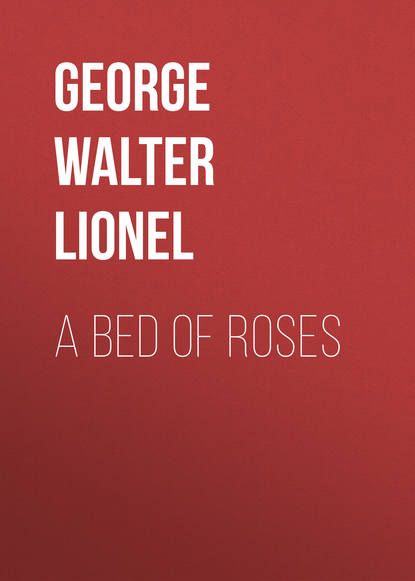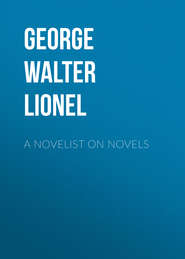По всем вопросам обращайтесь на: info@litportal.ru
(©) 2003-2024.
✖
A Bed of Roses
Настройки чтения
Размер шрифта
Высота строк
Поля
'What will you do when you can't run the house any more?' she asked more gently.
'Do, mum? I dunno.'
Yet another philosophy.
'Miss Briggs,' came a man's voice from the stairs.
'Coming, sir,' yelled Miss Briggs in the penetrating tone that calling from cellar to attic teaches.
'Where are my boots?' said the voice on the stairs.
'I'll get 'em for you, sir,' cried Miss Briggs shuffling to the door on her worn slippers.
Life is a hard thing, thought Victoria again. Another woman for the scrap heap. Fourteen hours work a day, nightmares of unlet rooms, boots to black and coals to carry, dirt, loneliness, harsh words and at the end 'I dunno.' Is that to be my fate? she wondered.
However her blood soon raced again; she was an actress, she was going abroad, she was going to see the world, to enslave it, to have adventures, live. It was good. All that day Victoria trod on air. She no longer felt her loneliness. The sun was out and aglow, bringing in its premature exuberance joyful moisture to her temples. She, with the world, was young. In a fit of extravagance she lunched at a half crown table d'hôte in Oxford Street, where pink shades softly diffuse the light on shining glass and silver. The coffee was almost regal, so strong, so full of sap. The light of triumph was in her eyes, making men turn back, sometimes follow and look into her face, half appealing, half insolent. But Victoria was unconscious of them, for the world was at her feet. She was the axis of the earth. It was in such a frame of mind that, the next day, she climbed the steps of Soho Place, careless of the view into the underground kitchen, of the two dogs who under the archway fought, growling, fouling the air with the scents of their hides, over a piece of offal. She ran up the stairs lightly. The door was still ajar.
Two men were sitting in the anteroom, both smoking briar pipes. The taller of the two got up.
'Yes?' he said interrogatively.
'I.. you.. is Mr Carrel here?' asked Victoria nervously.
'No Miss,' said the man calmly, 'he's just gone to Marlborough Street.'
'Oh,' said Victoria, still nervous, 'will he be long?'
'I should say so, miss,' replied the man, 'perhaps twelve months, perhaps more.'
Victoria gasped. 'I don't understand,' she said, but her heart began to beat.
'Don't s'pose you would, miss,' said the short man, getting up. 'Fact is, miss, we're the police and we've had to take him; just about time we did, too. Leaving for France to-night with a batch of girls. S'pose you're one of them?'
'I was going to-night,' said Victoria faintly.
'May I have your name?' asked the tall man politely, taking out a pocket book.
'Fulton,' she faltered. 'Victoria Fulton.'
'M'yes, that's it. 'Gladys Oxford,'' said the tall man turning back a page. 'Well Miss, you can thank your stars you're out of it.'
'But what has he done?' asked Victoria with an effort.
'Lord, Miss, you're from the country, I can see,' said the short man amiably. 'I thought everybody knew that little game. Take you over to Vichy, you know. Make you dance and sing. Provide costumes.' He winked at his companion.
'Costumes,' said Victoria, 'what do you mean?'
'Costumes don't mean much, Miss, over there,' said the tall man. 'Fact is you'd have to wear what they like and sing what they like when you pass the plate round among the customers.'
Something seemed to freeze in Victoria.
'He said it was a theatre of varieties,' she gasped.
'Quite true,' said the tall man with returning cynicism. 'A theatre right enough, but you'd have supplied the variety to the customers.'
Victoria clenched her hands on the handle of her parasol. Then she turned to fly.
The short man stopped her and demanded her address, informing her that she was to attend at Marlborough Street next day at eleven thirty.
'Case mayn't be called before twelve,' he added. 'Sorry to trouble you, Miss. You won't hear any more about it unless it's a case for the Sessions.'
Victoria ran down the steps, through the alley and into Charing Cross Road as if something was tracking her, tracking her down. So this was the end of the dream. She had stretched her hand out to the roses, and the gods, less merciful to her than to Tantalus, had filled her palm with thorns. It was horrible, horrible. She had imagination, and a memory of old prints after Rowlandson which her father had treasured came back to her with almost nauseating force. She pictured the French café chantant like the Cave of Harmony; rough boards on trestles, laden with tankards of foaming beer, muddy lights, a foulness of tobacco smoke, a raised stage with an enormous woman singing on it, her eye frightfully dilated by belladonna, her massive arms and legs gleaming behind the dirty footlights and everywhere around men smoking, with noses like snouts, bodies like swines, hairy hands – hands, ye gods!
She walked quickly away from the place of revelation. She hurried through the five o'clock inferno of Trafalgar Square, careless of the traffic, escaping death ten times. She hurried down the spaces of Whitehall, and only slackened her pace at Westminster Bridge. There she stopped for a moment; the sun was setting and gilded and empurpled the foreshores. The horror of the past half hour seemed to fade away as she watched the roses and mauves bloom and blend, the deep shadows of the embankments rise and fall. Near by, a vagrant, every inch of him clothed in rags, the dirt of his face mimicking their colour, smoked a short clay pipe, puffing at long intervals small wreaths of smoke into the blue air. And as Victoria watched them form, rise and vanish into nothingness, the sun kiss gently but pitilessly the old vagrant hunched up against the parapet, the horror seemed to melt away. The peace of the evening was expelling it, but another dread visitor was heralded in. Victoria felt like lead in her heart, the return of uncertainty. Once more she was an outcast. No work. Once more she must ask herself what to do and find no answer.
The river glittered and rose and fell, as if inviting her. Victoria shuddered. It was not yet time for that. She turned back and, with downcast eyes, made for St James's Park. There she sat for a moment watching a pelican flop on his island, the waterfowl race and dive. The problem of life was upon her now and where was the solution? Must I tread the mill once more? thought Victoria. The vision of agencies again, of secretaries courteous or rude, of waits and hopes and despairs, all rushed at her and convinced her of the uselessness of it all. She was alone, always alone, because she wanted to be free, to be happy, to live. Perhaps she had been wrong after all to resist the call of the river. She shuddered once more. A couple passed her with hands interlocked, eyes gazing into eyes. No, life must hold forth to her something to make it worth while. She was cold. She got up and, with nervous determination, walked quickly towards the gate.
The first thing to be done was to get quit of all the horrors of the day, to cut away the wreckage. She dared not stay at Castle Street. She would be tracked. She would have to give evidence. She couldn't do it. She couldn't. Victoria having regained her coolness was in no wise uncertain as to her course of action. The first thing to do was for her to lose herself in London, and that so deep that none could drag her out and force her to tell her story. She must change her lodgings then. Nothing could be easier, as she had already given Miss Briggs notice. In fact the best thing to do would be to keep up the fiction of her departure for France.
CHAPTER XIII
Victoria entered her room. It was in the condition that speaks of departure. Her trunks were packed and corded, all save a small suitcase which still gaped, showing spaces among the sundries that the skilled packer collects in the same bundle. Every drawer was open; the bed was unmade; the room was littered with newspapers and nondescript articles discarded at the last moment. Victoria rang her bell and quickly finished packing the suitcase with soap, washing gloves, powder-puffs and such like. As she turned the key Miss Briggs opened the door.
'Oh, Miss Briggs,' said Victoria quietly, 'I find that I must go down by an earlier train; I must be at Charing Cross in an hour; I'm going now.'
'Yes, mum,' said Miss Briggs without interest. 'Shall I tell the greengrocer to come now, mum?'
'Yes please, Miss Briggs; here are the seven shillings.'
Miss Briggs accepted the money without a word. It had formed the basis of a hot argument between her and her tenant; she considered herself entitled to one week's rent in lieu of notice but Victoria's new born sense of business had urged the fact that she had had two days notice; this had saved her three shillings. Miss Briggs laboured under a sense of injury, so she did not see Victoria to the door.
This was well, for Victoria was able to pay the greengrocer and to get rid of him in an artistic manner by sending him to post an empty envelope addressed to an imaginary person, while she directed the cabman to Paddington; this saved her awkward questions and would leave Miss Briggs under the impression that she had gone to Charing Cross.
At Paddington station she left her luggage in the cloak-room and went out to find lodgings. Her quest was short, for she had ceased to be particular, so that within an hour she was installed in an imposing ground floor front in the most respectable house in Star Street. The district was not so refined as Portsea Place, but the house seemed clean and the quarters were certainly cheaper; eleven and six covered both them and the usual breakfast.
Victoria surveyed the room in a friendly manner; there was nothing attractive or repulsive in it; it was clean; the furniture was almost exactly similar to that which graced her lodgings in Portsea Place and in Castle Street. The landlady seemed a friendly body, and had already saved Victoria a drain on her small store by sending her son, an out-of-work furrier's hand, to fetch the luggage in a handcart. Remembering that she was a fugitive from justice she gave her name as Miss Ferris.
Victoria returned from a hurried tea, unpacked with content the trunk that should have followed her to France. She was almost exhilarated by the feeling of safety which enveloped her like comforting warmth. The day was blithe in unison. She felt quite safe, every movement of her flight having been so skilfully calculated; she was revelling therefore in her escape from danger, the deepest and truest of all joys.
The next morning, however, found her in the familiar mood of wondering what was to become of her. After an extremely inferior breakfast which brought down upon the already awed Mrs Smith well deserved reproaches, Victoria investigated the Telegraph columns with the usual negative results and, in the resultant acid frame of mind, went through her accounts and discovered that her possessions amounted to twelve pounds, eight shillings and four pence. This was a terrible blow; the outfit for the interview with Carrel and the trip to France had dug an enormous hole in Victoria's resources.
'I must hurry up and find something,' said Victoria to herself. 'Twelve pounds eight and fourpence – say twelve weeks – and then?'
The next morning reconciled her a little to her fate. True, the paper yielded no help, but a lengthy account of Carrel's preliminary examination occupied three quarters of a column in the police court report. It was apparently a complicated case, for Carrel had been remanded and bail refused. The report did not yield her much information. Apparently Carrel was indicted for other counts than the exporting of the dancing girls to Vichy, for nine women had appeared. Victoria had quite a thrill of horror when she read the line in which the well schooled reporter dismissed the evidence of Miss 'S,' by saying that Miss 'S – ' here gave an account of her experience in the green room of the Folichon-Palace in 1902.' The baldness of the statement was appalling in its suggestiveness. She had been called, apparently, but no comment was made on her non-appearance.
'That's all over,' said Victoria with decision, throwing the newspaper down. She rose from the armchair, shook herself and opened the window to let out the smell of breakfast. Then she put on her hat and gloves and decided to have a walk to cheer herself up. Mindful that she was in a sense a fugitive, she avoided the Marble Arch and made for the Park through the desolate respectability of Lancaster Gate.
She made for the South East, unconsciously guided by the hieratic shot tower of Westminster. It was early; the freshness of May still bejewelled with dew drops the crisp new grass; the gravel, stained dark by moisture, hardly crunched under her feet, but gave like springy turf. Forgetting her depleted exchequer Victoria stepped briskly as if on business bent, looking at nothing but absorbing as through her skin the kisses of the western wind. At Hyde Park Corner she turned into St James's Park, and, passing the barracks, received with an old familiar thrill a covert smile from the handsome sentry. After all she was young, and it was good somehow to be once more smiled at by a soldier. Soldiers, soldiers – stupid perhaps, but could one help liking them? Victoria let her thoughts run back to Dicky – poor old wasted Dicky – and the Colonel and his liver, and Bobby, who would never be anything but Bobby, and Major Cairns too. Victoria felt a tiny pang as she thought of the Major. He was hardly young or handsome but strong, reassuring. She suddenly felt his lips on her neck again as she gazed rapidly at the dark lift on the horizon of the coast of Araby. He was a good fellow, the Major. She would like to meet him again.







